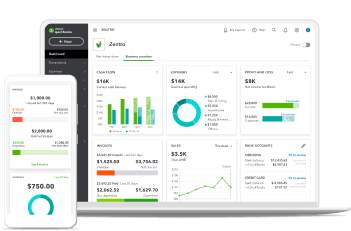Intuit is providing this for informational purposes only and does not provide professional advice. We recommend seeking professional advice as required.

A Guide to Digital Certificates
As businesses prepare for upcoming e-invoicing mandates, it’s important to consider digital certificates as part of your readiness.
Key Takeaways:
- A digital certificate is an electronic document that proves a business’ identity and confirms it is an authorised seller.
- Digital certificates are issued by trusted third‑party Certificate Authorities (CAs) and use encryption to protect invoice data and verify its integrity.
- If you issue e‑invoices manually through the MyInvois portal without third‑party tools, a digital certificate may not be mandatory.
- Digital certificates expire and must be renewed periodically to remain compliant with Malaysia’s e‑invoicing regulations.
What are Digital Certificates?
A Digital Certificate is an electronic document that proves the identity of a business and verifies their authenticity as an authorised seller. It verifies that the invoice is genuinely from your business and uses encryption to ensure data integrity and the protection of sensitive information, like address information or payment details.
Digital certificates are purchased through a third-party Certificate Authority (CA). Please see further information below about how you can obtain a digital certificate.
Digital certificate vs. digital signature
A digital certificate is the electronic document issued by a trusted CA that verifies your identity as the certificate holder. You need a digital certificate so that you can issue digital signatures.
A digital signature is the secure and encrypted ‘stamp’ that verifies the integrity of a digital document, similar to a handwritten signature. To meet relevant e-invoice requirements of the Inland Revenue Board of Malaysia (LHDN), you will need to include a digital signature on your invoices to verify this is a legitimate invoice from your business.
More specifically, a component of the digital signature includes a ‘hash value’, typically represented as a set of unique numbers (hexadecimal number). This hash value connects to the government API that recognises and processes e-invoices.
Do I need a digital certificate?
There are two ways you can submit an e-invoice - either through a financial management software (FMS) solution like QuickBooks, or via the MyInvois portal directly.
If you are submitting e-invoices via a third-party solution you may need a digital certificate depending on the set-up of your third-party solution. This is a requirement for QuickBooks customers.
You don’t need a digital certificate if you are submitting individual invoices through the MyInvois portal directly.
How to get a Digital Certificate
A digital certificate can be purchased through a trusted third-party Certificate Authority (CA). Here are the steps:
- Find a Certificate Authority (CA) and arrange a quote on which type of certificate is best suited for your business. The Malaysian Communications and Multimedia Commission (MCMC) has collated an official list of certified Certified Authorities here.
- Once purchased, send your CA all relevant information as requested - they will need to use this to verify your authenticity.
- Receive digital certificate for QuickBooks E-invoicing set-up.
Note: Digital certificates do expire over a period of time and expiry depends on the type of digital certificate you have purchased. You’ll need to make sure this is regularly renewed to ensure you remain compliant with e-invoicing requirements.





